You are using an out of date browser. It may not display this or other websites correctly.
You should upgrade or use an alternative browser.
You should upgrade or use an alternative browser.
United States of Amazon: exposing horrible business practices & more
- Thread starter Race Jones
- Start date
More options
Who Replied?Freeman
Get well soon 🦉🇨🇦
Tried to tell yall to get on and get your customer rewards but eh.
Lamarquise
Active Member
I use Citrix feature working from home and never thought it could have the capability to monitor my work.
I definitely didn't install any of my work apps on my personal especially after finding out the Microsoft Intunes can erase and reset your phone if it feels your phone is compromising company data
I definitely didn't install any of my work apps on my personal especially after finding out the Microsoft Intunes can erase and reset your phone if it feels your phone is compromising company data
LurkerSix
OG
They had to threaten to strike to get this, smh.
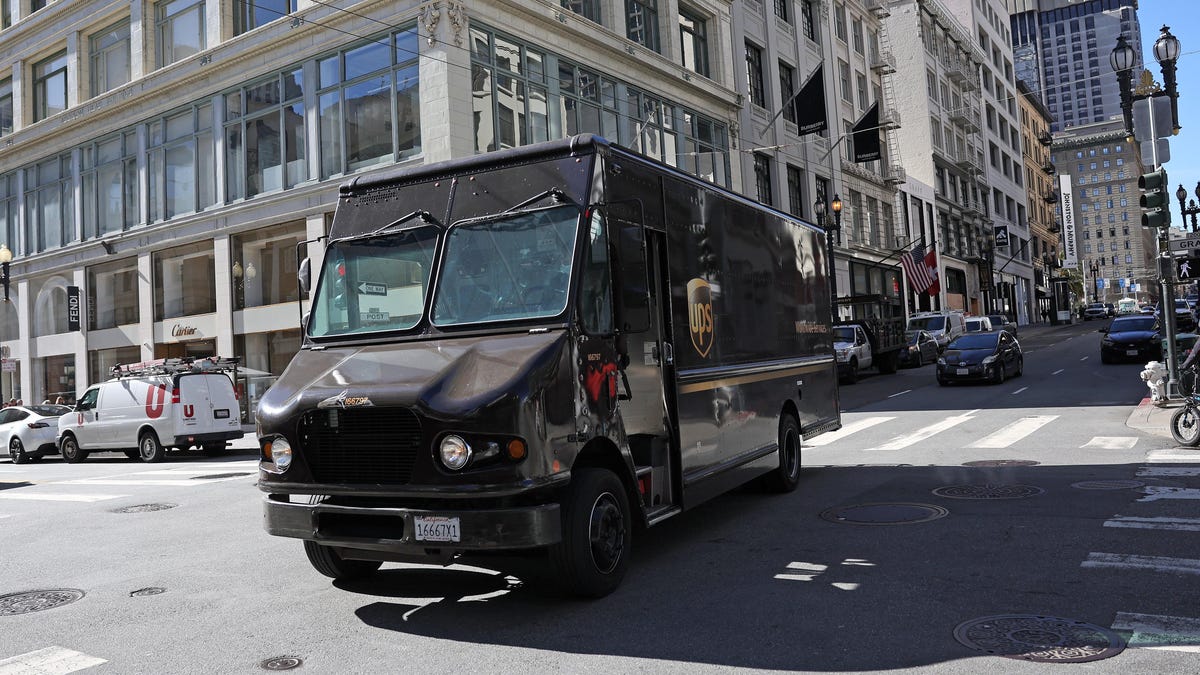
 jalopnik.com
jalopnik.com

UPS Drivers May Finally Get Air Conditioning In Their Trucks
The Teamsters and UPS have tentatively agreed to language mandating climate control in the company's vehicles starting in 2024
 jalopnik.com
jalopnik.com
UPS is a massive company that made around $2.5 billion in profits in the first quarter of 2023, and essentially all that money is being made by its employees. That makes sense, right? You hire people because they make you money. Only, as an employer, you have responsibilities to your employees, and for years now, UPS has been failing to meet some of those by refusing to install air conditioning and other heat-abating equipment in its trucks.
We covered this last year and were left wondering whether that would change with the company’s potentially difficult union contract negotiation with the Teamsters coming up this year. We’re extremely pleased to see that tentatively; it has, according to an announcement made by the Teamsters on Wednesday.
“Air conditioning is coming to UPS, and Teamster members in these vehicles will get the relief and protection they’ve been fighting for,” said Teamsters General President Sean O’Brien, in a statement. “The union’s entire national committee and our rank-and-filers should be commended for staying in this fight and making their priorities known to this company. We are here to protect more than 340,000 UPS Teamsters and get the best contract in the history of our union with this company. Today’s progress was a significant step towards a stronger new reality for so many workers and their families.”
It’s very exciting news, but when the Teamsters say tentatively, what do they mean in this case? Specifically, it means that the union and UPS have agreed to the language for the contract, which has not yet been locked in and voted on. Is it likely that this is how it will work in the final adopted contract? Yes, but hey, sometimes things happen, and you can’t predict the future.
The language in the contract is pretty specific about what UPS’ responsibilities will be, too, and it goes beyond air conditioning. First, it would mandate that UPS fit in-cab air conditioning systems in all larger delivery vehicles, smaller vans and all of UPS’ big brown boxy trucks (aka package cars) that the company is known for that are purchased after January 1st, 2024.
Beyond the in-cab A/C, two fans would also be installed in the cab of all package cars, and all newer non-electric UPS package cars and vans would be installed with exhaust heat shields to mitigate exhaust heat creeping into the cab from below. Additionally, newly purchased package cars going forward would be fitted with vents in their cargo areas to reduce the extreme temperatures in the back of the vehicles.
LurkerSix
OG
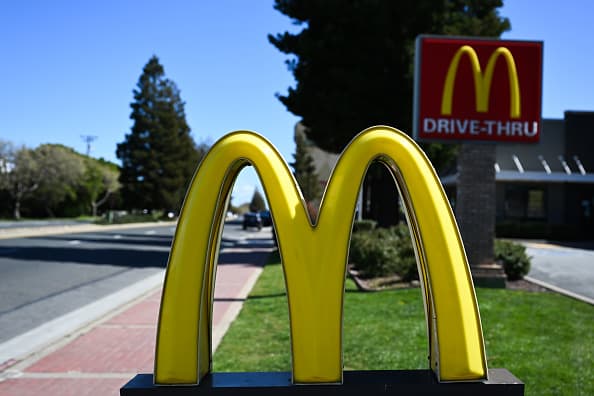
McDonald's franchisee group says new California fast-food bill will cause 'devastating financial blow'
The California fast-food bill will raise the minimum wage for many California workers at fast-food chains to $20 an hour starting April 1.
The National Owners Association, an independent advocacy group of more than 1,000 McDonald's owners, projects in the memo the bill will cost each restaurant in the state $250,000 annually. The group said the costs "simply cannot be absorbed by the business model." It also warned similar legislation will follow in other states.
Further, the organization claimed in the letter that "a small coalition of franchisors, including McDonald's, the National Restaurant Association (NRA) and the International Franchise Association (IFA) independently w/o franchisee involvement, negotiated a deal with the [Service Employees International Union]; causing the legislative outcome to now become certain."
McDonald's sent its own letter to its restaurant system on Monday, which was viewed by CNBC. Responding to the bill, the company said it and other franchisee groups "worked tirelessly over the past year to fight these policies and protect Owner/Operators' ability to make decisions for their businesses locally and protect their restaurants and their crew."
"This included forming a coalition of brands to refer [an earlier version of the bill] to California voters in November 2024 — while expensive and unexpected we felt we had no other choice. We also significantly increased our political engagement in the state. This included a newly established North America Impact Team to work horizontally, new lobbyists and campaign consultants, and a dramatic step-change in our political activity," it wrote.
The company declined to comment further on the NOA's letter or position.
Roger Delph, a McDonald's franchisee from California who served on the state's owner/operator task force, said in a statement to CNBC that he worked with McDonald's, other franchisees and separate companies to "protect" the business model from what he called "an all-out attack."
"That involved countless conversations and meetings, and a discussion with the Governor's office directly," he said. "Anyone who is suggesting this was not a collaborative and successful effort to protect the franchised business model in California, or that franchisee involvement was absent, was either not involved or is contorting the facts."
In its systemwide letter, the fast-food giant also outlined changes made to the final version of the bill that are considered better for owners than the initial proposed legislation. The new legislation eliminated the threat of joint franchisor-franchisee liability, which McDonald's said would "destroy the franchise model in California and strip thousands of restaurant owners of the right to run their business."
In addition, it said the bill unwinds the reconstitution of the Industrial Welfare Commission, which would have "sweeping powers" over decisions on wages and workplace requirements for restaurants. The letter said the commission would have been able to make immediate and unchecked decisions on wages and working conditions in the state.
Key Points
- After California lawmakers passed a landmark fast-food bill, an independent advocacy group of McDonald's owners is pushing back against what it says will be a "devastating financial blow" to its franchisees in the state, according to a memo viewed by CNBC.
- The bill, AB 1228, was passed by the state Senate late Thursday and heads to Gov. Gavin Newsom's desk for signature. He has pledged to sign it into law.
- It includes a wage floor of $20 for California workers at fast-food chains with at least 60 locations nationwide, starting April 1.
Seems fair to me, but its really funny when you remember, you have to be a millionaire to even open a Mcdonalds franchise.
LurkerSix
OG
European workers stay showing how pussy, selfish and stupid most Americans are. smh
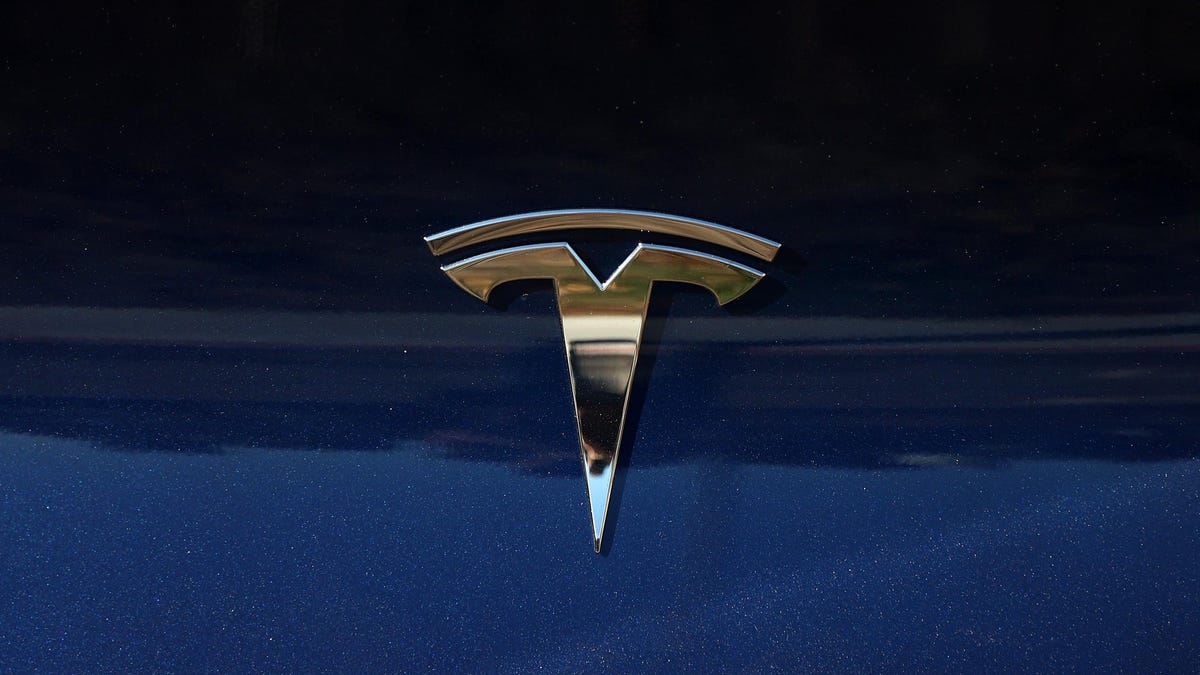
 jalopnik.com
jalopnik.com
From Wired:

Swedish Dock Workers Threaten To Block Tesla Deliveries
Local unions claim that Tesla isn't following Swedish labor law
 jalopnik.com
jalopnik.com
Dock workers in Sweden might prevent deliveries of new Teslas into the country’s four ports, Wired writes, because the automotive company has a disregard for local labor laws. The Swedish Transport Workers’ Union is set to begin striking on Nov. 7.
The strike would be undertaken in support of workers at Tesla’s repair shops in the country, who have been on strike for a week now after the company refused to sign a collective agreement with their union.
From Wired:
In Sweden, collective agreements regulate the relationship between employers and their employees, including terms of pay, pensions, working conditions, and other benefits. It’s not mandatory for a company to sign a collective agreement, but it is convention. Around 90 percent of Swedish employees are covered by these arrangements.
“We would like our members working at Tesla to have the same benefits as basically everybody else on the Swedish labor market,” says Jesper Pettersson, spokesperson for IF Metall. “We don’t see any reason why Tesla should play by different rules.”
Tesla has proven time and again that it dislikes unions, and this particular dispute revolves around the claim that Tesla repair workers in Sweden earn less and lack similar pensions and insurance programs when compared to other mechanics. However, the strike by repair workers has been largely ineffective; should the dock workers join this strike to prevent Teslas from being delivered, then the mechanics’ demands my be more readily met.
The Tesla mechanic strike is, according to IndustriALL, the first strike against Tesla in the company’y short history. It follows five years of refusal by Tesla’s Swedish subsidiary to recognize and negotiate a collective agreement for the 120 mechanics and service technicians who care for the Teslas of the country. The strike has since been expanded to include all mechanics at all shops, not just Tesla-only shops; no mechanic will service a Tesla in Sweden until demands are met.
LurkerSix
OG
Not gunna post all of it, just some cliffs
Judge voids Elon Musk's 'unfathomable' $56 billion Tesla pay package
A Delaware judge tossed out Elon Musk’s record-breaking $56 billion Tesla (TSLA.O), opens new tab pay package on Tuesday, calling the compensation granted by the EV maker’s board “an unfathomable sum” that was unfair to shareholders.
Shares of Tesla dropped about 2% in premarket trade, and some investors seized on the ruling in hopes it might prompt Tesla to overhaul its governance.
The Tesla board has been criticized as failing to provide oversight of its combative, headline-making CEO, who has fought regulators and led several other companies at the same time.
The ruling, which can be appealed, nullifies the largest pay package in corporate America. The judge found the share-based compensation was negotiated by directors who appeared beholden to Musk, currently ranked by Forbes magazine as the world’s richest person.
The ruling comes as Tesla is preparing another round of compensation negotiations with the CEO. Musk said in a post on X this month that he was uncomfortable leading Tesla unless he had 25% of the voting control. The billionaire owned around 13% of the company at the time and he said negotiations would not start until McCormick had ruled.
McCormick wrote that many of the directors on Tesla's board, including current members Kimbal Musk, Elon Musk's brother, and James Murdoch, son of media tycoon Rupert Murdoch, lacked independence because of their close personal ties with the CEO. Two of Tesla's other current directors, Robyn Denholm and Ira Ehrenpreis, showed a lack of independence in the pay decision, she said.
Ross Gerber, president and CEO at Gerber Kawasaki Wealth & Investment Management and a Tesla investor, told Reuters the ruling showed the company needed to replace at least three directors with independent board members before it can negotiate a new pay package for Musk.
"Essentially, the entire corporate structure of Tesla has been deemed, like not appropriate for a public company," Gerber said.
Tesla directors argued during the trial that the company was paying to ensure one of the world's most dynamic entrepreneurs continued to dedicate his attention to the electric vehicle maker. Antonio Gracias, a Tesla director from 2007 to 2021, called the package "a great deal for shareholders".
The plaintiff's legal team also argued the board had a duty to offer a smaller pay package or look for another CEO and that they should have required Musk to work full-time at Tesla instead of allowing him to focus on side projects, like SpaceX and X.
Amit Batish at Equilar, an executive pay research firm, estimated in 2022 that Musk's package was around six times larger than the combined pay of the 200 highest-paid executives in 2021.
LurkerSix
OG
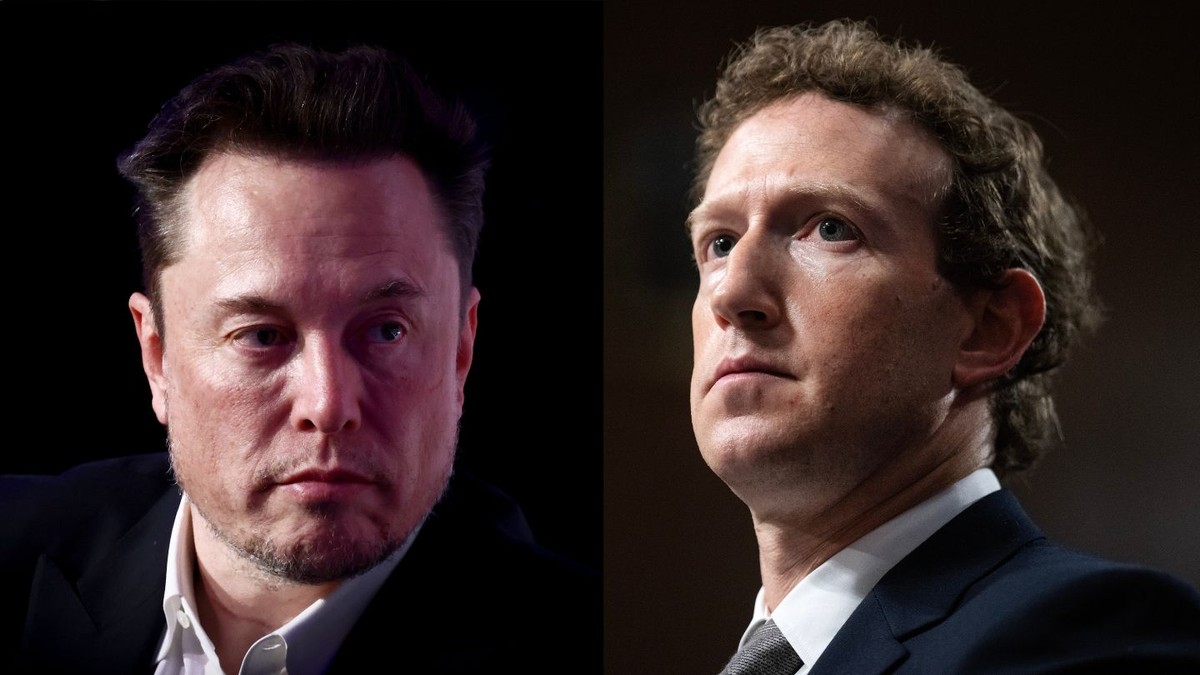
U.S. Corporations Are Openly Trying to Destroy Core Public Institutions. We Should All Be Worried.
Trader Joe's, SpaceX, and Meta are arguing in lawsuits that government agencies protecting workers and consumers—the NLRB and FTC—are "unconstitutional."
U.S. Corporations Are Openly Trying to Destroy Core Public Institutions. We Should All Be Worried.
Trader Joe's, SpaceX, and Meta are arguing in lawsuits that government agencies protecting workers and consumers—the NLRB and FTC—are "unconstitutional."
Trader Joe’s has become the second company in a month to argue in court that the National Labor Relations Board is “unconstitutional,” following the lead of Elon Musk’s SpaceX, as both companies face board charges for firing employees. These two major corporations aren’t alone in attempting to protect their interests by undermining public institutions; Meta is also arguing in an ongoing lawsuit that the Federal Trade Commission is unconstitutional.
A legal expert told Motherboard that these companies are attempting to take advantage of what they believe is a friendly Supreme Court—judges currently lean right by a six-to-three margin—while they can.
SpaceX, accused of illegally firing eight workers who were critical of Musk, filed its lawsuit one day after the Board brought charges against it, arguing that the agency lacked presidential oversight and violated the “separation of powers” provision outlined in the U.S. Constitution. Trader Joe’s, accused of union-busting, stated in a hearing that the Board was unconstitutional, and that it would “preserve the issue for further briefing and argument,” according to a transcript of the hearing shared by the Huffington Post.
These companies are not the first to bring charges of unconstitutionality against core government agencies. In November, Meta sued the Federal Trade Commission for unconstitutionality in a bid to prevent the FTC from preventing the social media giant from profiting off of data collected from minors.
“Meta respectfully requests that this Court declare that certain fundamental aspects of the Commission’s structure violate the U.S. Constitution,” the company’s complaint stated. It argued that the FTC violated the constitution because it served as both prosecutor and judge, its commissioner could not be removed by the U.S. president, and it denied the company’s right to a trial by jury.
“My sense is that the trend is increasing both because the corporations believe they have a sympathetic audience with this Supreme Court, and because workers' efforts to organize unions are increasing,” said Kate Andrias, a legal scholar at Columbia University who studies constitutional law and labor law. “So corporations feel more need to use all possible tools to resist.”
In April, the Supreme Court unanimously ruled in favor of a company challenging the FTC’s constitutional authority. Axon Enterprise, a company that makes TASERs and police body cameras, acquired competitor and police camera maker Vievu in 2018. The FTC challenged the acquisition two years later. Axon sued the agency for exercising unconstitutional authority, and after losing an appeals court decision in 2021, argued the case before the Supreme Court.
The Court ruled that the FTC Act, which established the agency and its administrative procedures in 1914, did not “displace a district court’s federal-question jurisdiction over claims challenging as unconstitutional the structure or existence” of the commission. The FTC abandoned its challenge. This means that lawsuits about the FTC’s constitutionality, such as that posed by Meta in November, are legally possible.
Laura Phillips-Sawyer, a professor of law at the University of Georgia who studies antitrust, told Motherboard that the Supreme Court’s new “major questions” doctrine made it easier for companies to challenge agencies’ authority.
“The Chevron doctrine, which everyone is talking about right now, resulted from a challenge to the EPA’s administrative authority in 1984—the EPA was not enforcing a rule critical to the Clean Air Act,” Phillips-Sawyer said in an email. “The Court said that non-enforcement was within the agency’s purview as it was empowered by Congress and the statute. It was a doctrine of deference to admin[istrative] agencies.”
“Of course now the Supreme Court has created the ‘major questions doctrine,’ which asserts that the Court can/will evaluate administrative rulemaking by agencies and determine if the promulgated rule falls within the authorities granted by Congress and the statute,” she continued. “Now, the Court seems to suggest that if deference is gone, all rulemaking might be challenged.”
Experts say that the same principle extends to challenges of the NLRB, which was established as part of the New Deal in 1935. Catherine Fisk, a law professor at the University of California, Berkeley, told Bloomberg News last week that the board had “been on the books for almost 90 years. The only thing that has changed is the membership of the Supreme Court.”
The Supreme Court has given itself authority over agencies’ decisions in the past. Phillips-Sawyer pointed to FTC v. Gratz, a 1920 case which challenged the commission’s authority to determine “unfair methods of competition.” The Court gave itself the final power to determine whether a company had committed an antitrust violation.
In a recent publication in the Northwestern University Law Review, Andrias wrote that companies commonly appeal to the judiciary. “Business focuses its claims on courts, including the Supreme Court,” she wrote. “The Supreme Court’s conservative majority has embraced much of business’s constitutional agenda, along with a robust form of judicial supremacy that posits the Court as the sole and final authority over the Constitution.”
“The nation’s largest corporations and trade associations, along with conservative legal advocacy groups, are spending vast sums lobbying against proposed labor law reform while mobilizing anti-union consultants and new forms of surveillance to defeat the recent unionization campaigns,” Andrias wrote. “At the same time, business is also working to reinvigorate and extend a set of constitutional and quasiconstitutional doctrines to weaken the power of workers, lock in the power of capital, and ultimately stymie core principles of egalitarian democracy and free labor embedded in the worker vision.”
Motherboard has previously reported on the efforts of massive U.S. companies, like Amazon, to prevent unionization by hiring anti-union consultants. Some companies, like Starbucks and Trader Joe’s, have sued their worker unions for trademark infringement.
“Contemporary fights about labor are also inherently fights about constitutional law—about the rights to which citizens and residents are entitled, about governmental powers and structure, and ultimately about how we constitute ourselves as a nation,” Andrias wrote.
Correction: An earlier version of this article stated that Trader Joe’s is suing the NLRB. Rather, the company argued in a court that the NLRB is unconstitutional while facing labor charges, but did not file a lawsuit. Motherboard regrets the error
LurkerSix
OG

Reddit Files to Go Public, Reveals That It Paid CEO $193 Million Last Year
Nineteen years since its founding, the social media site is finally going public.
www.thedailybeast.com
Last year, the company generated $804 million in revenue, up more than 20 percent compared to 2022. Public filings also showed that Huffman and Reddit’s chief operating officer, Jennifer Wong, were paid $286 million in 2023, including stock and option awards
Huffman returned as CEO in 2015 and has been working to set the company up for an IPO. As one example of its financial prospects, news broke this week that Google will pay Reddit $60 million per year to use its content to train AI models
orgen
No one special
https://techcrunch.com/2024/02/16/a...-to-demolish-national-labor-law/?guccounter=1

Image Credits: Lisa Werner (opens in a new window)/ Getty Images
Amazon alleged in a legal filing published Friday morning that the National Labor Relations Board (NLRB) is unconstitutional. SpaceX and Trader Joe’s — companies that, like Amazon, have repeatedly faced labor law violations from the federal agency — have recently made similar attacks that threaten national worker protections.
This is just Amazon’s latest attempt to block union organizing in its fulfillment centers. But this time, these companies aren’t just limiting the rights of their own workers. If these threats against the NLRB keep moving forward, American workers could lose workplace protections that they’ve had for almost a century.
“It’s a crock of s–t,” said Seth Goldstein, the legal counsel for Trader Joe’s United and the Amazon Labor Union. “I don’t believe any of it, and I think it’s just a cover to bust unions.”
Amazon claims that the NLRB’s structure is unconstitutional because administrative law judges are “insulated from presidential oversight,” thus violating the separation of powers. The company also argues against the structure of NLRB itself, as well as its ability to fine a company for unfair labor practices after a hearing, rather than a full jury trial.
Amazon did not respond to request for comment.
“Judges need protections to remain independent, just like federal judges. You can’t remove federal judges,” Goldstein told TechCrunch. The complaint about a lack of jury trials for companies may seem less dubious, but Goldstein still thinks it’s a stretch. “At the end of the day, the courts do have jurisdiction over decisions by the board. So what are they complaining about?”
Like other federal agencies, the NLRB is largely shaped by the current president. Under President Joe Biden, who refers to himself as pro-worker, the NLRB has been friendly toward workers’ causes. But as the 2024 election looms, a Republican administration could significantly change that, making it more likely for corporations to be successful in attempts to strike down long-standing labor law
Amazon and SpaceX are quietly trying to demolish national labor law
Amanda Silberling@asilbwrites / 3:44 PM PST•February 16, 2024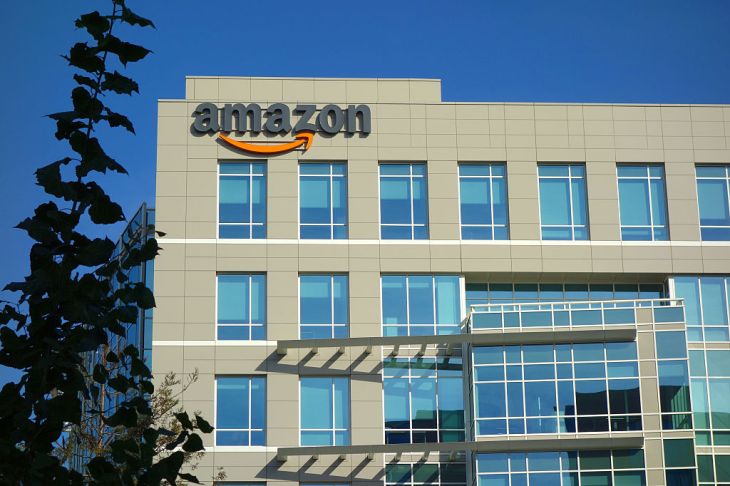
Image Credits: Lisa Werner (opens in a new window)/ Getty Images
Amazon alleged in a legal filing published Friday morning that the National Labor Relations Board (NLRB) is unconstitutional. SpaceX and Trader Joe’s — companies that, like Amazon, have repeatedly faced labor law violations from the federal agency — have recently made similar attacks that threaten national worker protections.
This is just Amazon’s latest attempt to block union organizing in its fulfillment centers. But this time, these companies aren’t just limiting the rights of their own workers. If these threats against the NLRB keep moving forward, American workers could lose workplace protections that they’ve had for almost a century.
“It’s a crock of s–t,” said Seth Goldstein, the legal counsel for Trader Joe’s United and the Amazon Labor Union. “I don’t believe any of it, and I think it’s just a cover to bust unions.”
Amazon claims that the NLRB’s structure is unconstitutional because administrative law judges are “insulated from presidential oversight,” thus violating the separation of powers. The company also argues against the structure of NLRB itself, as well as its ability to fine a company for unfair labor practices after a hearing, rather than a full jury trial.
Amazon did not respond to request for comment.
“Judges need protections to remain independent, just like federal judges. You can’t remove federal judges,” Goldstein told TechCrunch. The complaint about a lack of jury trials for companies may seem less dubious, but Goldstein still thinks it’s a stretch. “At the end of the day, the courts do have jurisdiction over decisions by the board. So what are they complaining about?”
Like other federal agencies, the NLRB is largely shaped by the current president. Under President Joe Biden, who refers to himself as pro-worker, the NLRB has been friendly toward workers’ causes. But as the 2024 election looms, a Republican administration could significantly change that, making it more likely for corporations to be successful in attempts to strike down long-standing labor law


